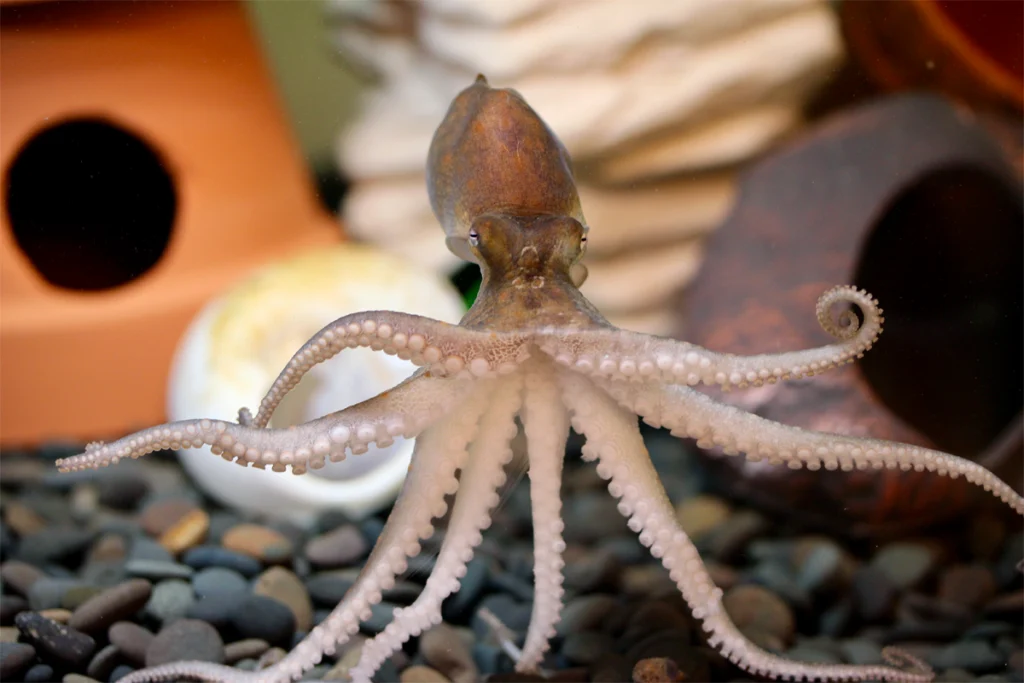Cephalopods
Recent articles
Protocol-sharing site aims to ease administrative burden of animal research
The library of regulatory-compliant animal procedures offers experimental standards and specific language that researchers can borrow for their own legal paperwork.

Protocol-sharing site aims to ease administrative burden of animal research
The library of regulatory-compliant animal procedures offers experimental standards and specific language that researchers can borrow for their own legal paperwork.
Octopus arm anatomy, molecular makeup revealed in new maps
The datasets provide “a very nice reference” for future functional studies.
Octopus arm anatomy, molecular makeup revealed in new maps
The datasets provide “a very nice reference” for future functional studies.
Knowledge gaps in cephalopod care could stall welfare standards
The U.S. National Institutes of Health wants to regulate research involving cephalopods. But there aren’t enough rigorous studies to base the regulations on, veteran cephalopod researchers say.

Knowledge gaps in cephalopod care could stall welfare standards
The U.S. National Institutes of Health wants to regulate research involving cephalopods. But there aren’t enough rigorous studies to base the regulations on, veteran cephalopod researchers say.
Explore more from The Transmitter
During decision-making, brain shows multiple distinct subtypes of activity
Person-to-person variability in brain activity might represent meaningful differences in cognitive processes, rather than random noise.

During decision-making, brain shows multiple distinct subtypes of activity
Person-to-person variability in brain activity might represent meaningful differences in cognitive processes, rather than random noise.
Basic pain research ‘is not working’: Q&A with Steven Prescott and Stéphanie Ratté
Prescott and Ratté critique the clinical relevance of preclinical studies in the field and highlight areas for improvement.

Basic pain research ‘is not working’: Q&A with Steven Prescott and Stéphanie Ratté
Prescott and Ratté critique the clinical relevance of preclinical studies in the field and highlight areas for improvement.
Proposed NIH budget cut threatens ‘massive destruction of American science’
A leaked draft of a Trump administration proposal includes an approximately 40 percent cut to the National Institutes of Health’s budget and a major reorganization of its 27 institutes and centers.

Proposed NIH budget cut threatens ‘massive destruction of American science’
A leaked draft of a Trump administration proposal includes an approximately 40 percent cut to the National Institutes of Health’s budget and a major reorganization of its 27 institutes and centers.